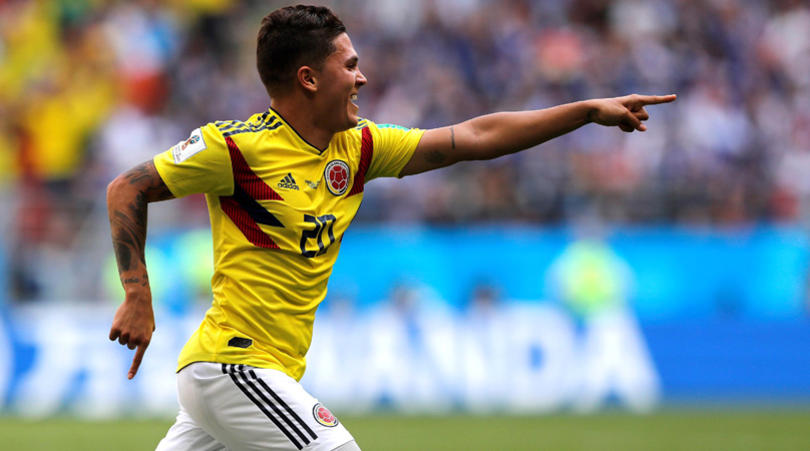How Mexico’s Rafa Marquez found himself on the U.S. blacklist – and what it’s meant for his World Cup
El Tri’s 145-cap legend is at his fifth edition of football’s greatest event, but being censored every step of the way thanks to astonishing accusations from the U.S. Treasury Department last August
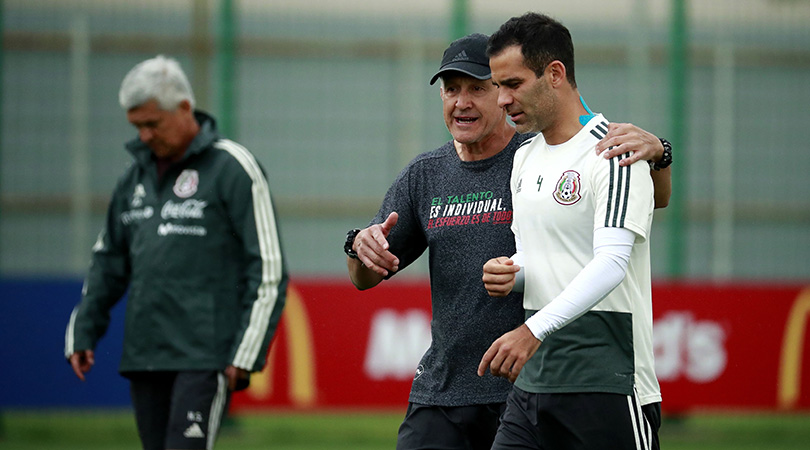
The shine beaming off the Mexican national team is at its brightest right now. The hard-fought opening-game victory over defending champions Germany made El Tri one of the tournament’s biggest early talking points.
This World Cup always had the potential to be a special one for Mexico. The core of the team has remained consistent, and the group of players that led them to the last 16 in Brazil four years ago is now seasoned and cohesive.
Even embattled manager Juan Carlos Osorio, who was booed in the send-off victory over Scotland, is now seen in an entirely new light. Yet, as they say, all that glitters is not gold.
Muted fanfare
Rafa Marquez’s inclusion in Mexico’s World Cup squad should have been cause for celebration. The 39-year-old’s physical condition was certainly up for debate – not least as he’d played his final game for Atlas in April – but his leadership skills were never in doubt.
Marquez has since become only the third player to appear in five World Cups – and the second outfielder. When the veteran stepped onto the field for the final 16 minutes of the Germany match and was handed the captain’s armband, he extended his own record to skippering his nation in five consecutive World Cups.
Marquez is probably the most iconic player to ever don the Mexico shirt. His playing days at Barcelona made him a star, and his crucial role over the years with El Tri a legend. Known as the ‘Kaiser de Michoacan’, the former Monaco man has a similar standing in Mexican football as the original bearer of that name, Franz Beckenbauer, does in Germany.
Get FourFourTwo Newsletter
The best features, fun and footballing quizzes, straight to your inbox every week.
But there was no ceremony when Marquez was brought on in his fifth World Cup. He didn’t participate in Mexico’s warm-up match in the United States against Wales. He didn’t travel with the squad because legally he couldn’t – Marquez isn’t permitted to enter the U.S.
In August last year, the United States Treasury Department’s Office of Foreign Assets Control (OFAC) placed Marquez and 20 others on a sanctions list for connections to the Flores Hernandez drug trafficking organisation. Some of Marquez’s business interests were allegedly used to funnel money for cartel activity. Assets were frozen, visas revoked, and a legend never looked at in the same light again.
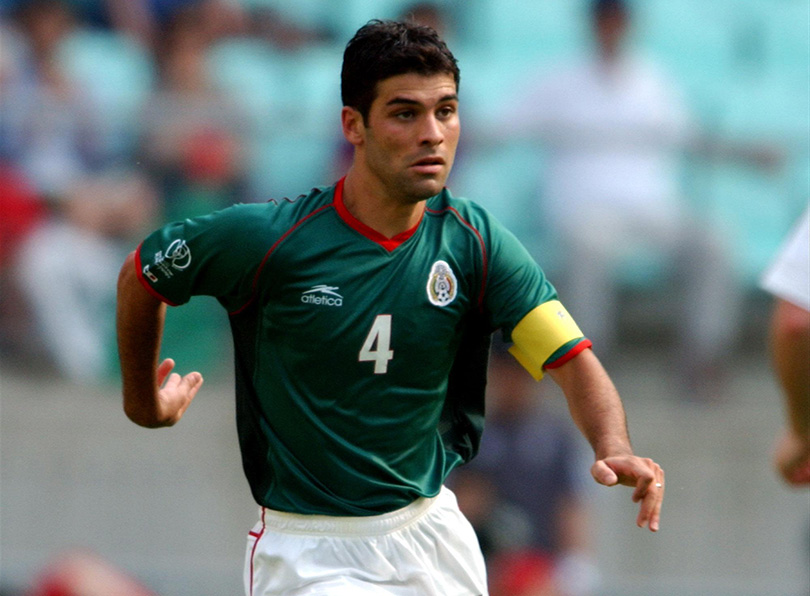
Marquez has denied any wrongdoing and hasn't been criminally charged, but recently reflected on the difficulties he’s faced since the allegations came to light.
"It was a very tough blow," Marquez told ESPN. "I think a lot of people don't realise, or don't know. The truth is that I don't regret anything even a little because I am no criminal; I've not done anything that’s against the law."
All of the above makes this his most awkward World Cup yet. Marquez has to dress differently to his team-mates. He has to drink from different water bottles. He can't do interviews anywhere near a logo-ridden backdrop. He can't fraternise with American FIFA staff. Effectively, he's hiding away in plain sight.
Two nations, one team
It’s often said that Mexico’s national team is the most popular team in two countries. The U.S., with its significant Mexican-American population, boasts massive attendance figures for the numerous international friendlies hosted in various NFL stadiums around the country, along with staggering TV viewership numbers coming from their neighbours. El Tri’s place in the United States is significant – just not on Marquez.
Mexican national team apparel is regularly adorned with a host of U.S. sponsors. From bottles to training tops, massive Stateside corporations have ensured that all of the eyes desperate for more El Tri will get a look at their branding.
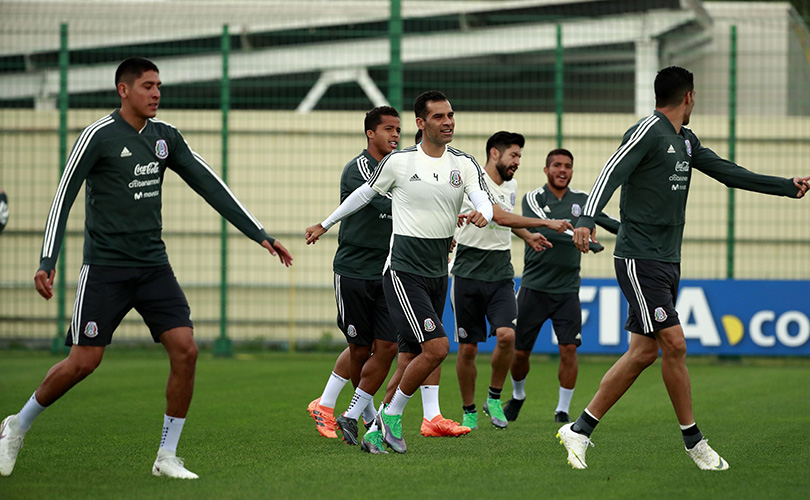
But Marquez’s inclusion on the Specially Designated Nationals list ensures that he will be sporting more of a minimalist look. The usual sprawl of logos on everything El Tri is absent on him – U.S. businesses are not permitted to conduct any type of transaction with organisations or individuals on the OFAC list.
There’s more. According to the New York Times, Mexico’s $1.5m fee from FIFA for taking part in the World Cup has had to be rerouted through European banks with no links to the United States. Marquez has agreed that he won’t receive a cent for his participation in Russia.
Mexi-can
The apparent impact on the team has been minimal. Marquez’s calm and collected performance in the final minutes of Mexico’s opening match, in the face of a relentless German attack, has once again shown El Kaiser’s importance to his national team.
Clearly he has the backing of his manager and his team-mates – the 39-year-old is not only a legend to the Mexican people, but also to his colleagues in the dressing room, many of whom point to him as the player they idolised in their formative years.
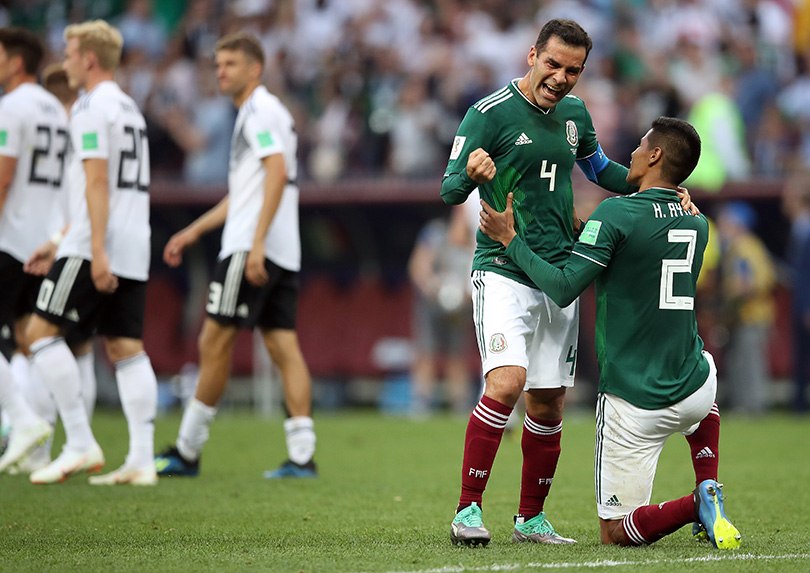
Osorio’s confidence and use of a player long past his prime provides clear evidence for what many have long thought of Marquez. There have been many players thought to be the next Rafa, but no Mexican has come close to matching his ability to control a match from deep, dictate play with precise passing and lead games calmly from the back.
Mexico are one of few national sides that can brag about qualifying for each World Cup since 1994 and advancing out of the group stage every time. But as far as World Cup success, that’s all they can say: El Tri have lost in the last 16 of the last six World Cups. The goal of reaching the fifth game, the quintopartido, is the white whale of Mexican football.
Despite the dark cloud hanging over Marquez, this national team looks set to break through that invisible barrier. And whether on or off the field, their long-serving captain will be as important as ever in the process.
"I dream about making history with the national team," Marquez said in that aforementioned ESPN interview. "It's been a thorn in the side that in four opportunities we've not been able to achieve it. This is the moment, it's today, it's the present. We can't wait four more years to make history."
Him especially.
